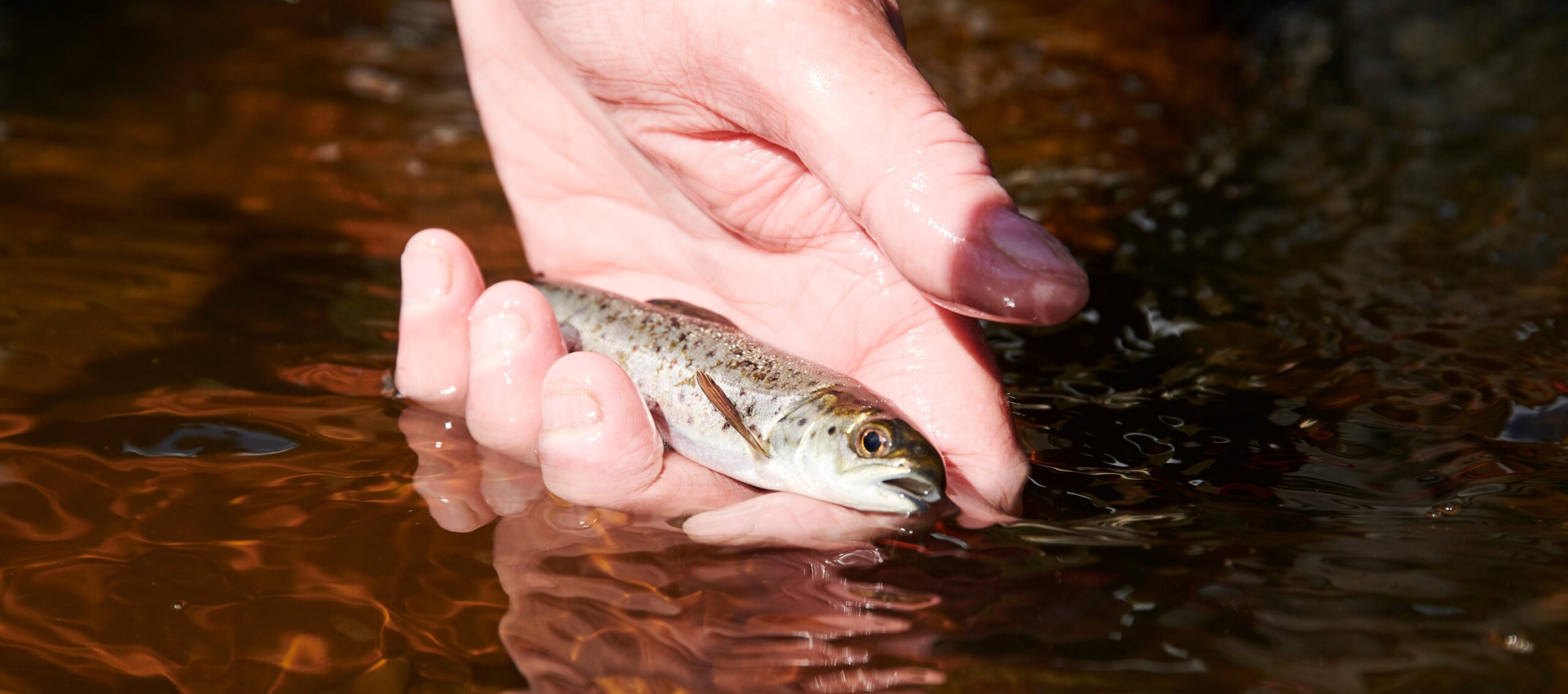Issued by the Atlantic Salmon Trust
{feed ubdate}
ubdate}
Aquaculture and Wild Atlantic Salmon and Sea Trout
It is beyond doubt that wild Atlantic salmon and sea trout can suffer from the presence of open pen salmon aquaculture, due primarily to a combination of harm from sea lice infestations and interbreeding with farm escapees. These problems have severely impacted individual populations of wild salmon and sea trout. It is for this reason the Atlantic Salmon Trust remains strongly opposed to unsustainable open pen aquaculture.
The Atlantic Salmon Trust recognises the role that the aquaculture industry plays in the Scottish economy and that its removal is not a realistic proposition. However, we firmly believe and advocate that the continuation of this industry must not be at the expense of wild fish populations.
To best protect wild salmon and sea trout populations the Atlantic Salmon Trust is working with the Scottish Government and Fisheries Management Scotland to inform and improve the regulatory regime governing aquaculture in Scotland.
In 2021 the Scottish Government, through the Salmon Interactions Working Group, accepted 42 recommendations which, if fully implemented, will improve protection for wild salmon from the negative impacts of aquaculture. The role of the Atlantic Salmon Trust is to ensure scientific evidence is collected and used to inform the full implementation of these recommendations, along with pressing for the urgent delivery of a robust, transparent and enforceable regulatory regime.
Populations of wild Atlantic salmon and sea trout are in crisis and the Atlantic Salmon Trust will always put their well-being above all other considerations.
#PuttingWildSalmonFirst
Photo credit : Ben Ettridge
The post AST Policy Statement on Aquaculture appeared first on The Atlantic Salmon Trust.

 atlanticsalmontrust.org
atlanticsalmontrust.org
{feed
Aquaculture and Wild Atlantic Salmon and Sea Trout
It is beyond doubt that wild Atlantic salmon and sea trout can suffer from the presence of open pen salmon aquaculture, due primarily to a combination of harm from sea lice infestations and interbreeding with farm escapees. These problems have severely impacted individual populations of wild salmon and sea trout. It is for this reason the Atlantic Salmon Trust remains strongly opposed to unsustainable open pen aquaculture.
The Atlantic Salmon Trust recognises the role that the aquaculture industry plays in the Scottish economy and that its removal is not a realistic proposition. However, we firmly believe and advocate that the continuation of this industry must not be at the expense of wild fish populations.
To best protect wild salmon and sea trout populations the Atlantic Salmon Trust is working with the Scottish Government and Fisheries Management Scotland to inform and improve the regulatory regime governing aquaculture in Scotland.
In 2021 the Scottish Government, through the Salmon Interactions Working Group, accepted 42 recommendations which, if fully implemented, will improve protection for wild salmon from the negative impacts of aquaculture. The role of the Atlantic Salmon Trust is to ensure scientific evidence is collected and used to inform the full implementation of these recommendations, along with pressing for the urgent delivery of a robust, transparent and enforceable regulatory regime.
Populations of wild Atlantic salmon and sea trout are in crisis and the Atlantic Salmon Trust will always put their well-being above all other considerations.
#PuttingWildSalmonFirst
Photo credit : Ben Ettridge
The post AST Policy Statement on Aquaculture appeared first on The Atlantic Salmon Trust.

AST Policy Statement on Aquaculture - The Atlantic Salmon Trust
Aquaculture and Wild Atlantic Salmon and Sea Trout It is beyond doubt that wild Atlantic salmon and sea trout can... More
 atlanticsalmontrust.org
atlanticsalmontrust.org
